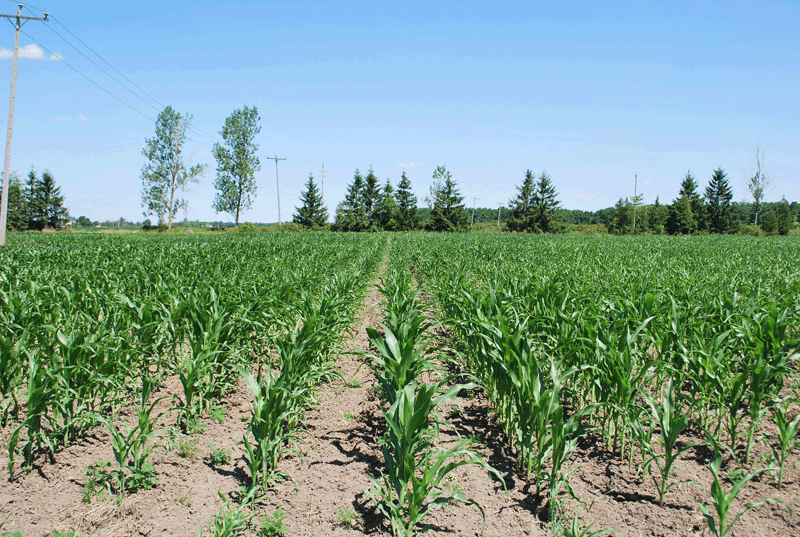Organic crops
AN ECONOMIC OPPORTUNITY
A MICHIGAN STATE University educator says his research shows organic farming is full of opportunity and optimism. Dan Rossman, Senior Extension Educator and Product Center Counselor with Michigan State University, talked about the rising opportunities in organic crops at the 2014 Southwest Agricultural Conference. He referenced United States Department of Agriculture (USDA) numbers which show consumer demand for organics continues to rise, with US sales in 2012 reaching an estimated $28 billion.

“The numbers for 2013 aren’t in yet, but projected growth for both 2013 and 2014 is a further 10 percent a year,” said Rossman. “Organic farming in Michigan continues to be full of opportunity and optimism.”
Rossman said this growth has fueled an increased commitment to organics with significant investment in infrastructure as well. As an example, he referenced Herbrucks Poultry Ranch in Saranac, Michigan – a third-and-fourth-generation family business who has been investing heavily in organics since 2005. Herbrucks recently built a new feed mill with half of the mill designated to organic feed. They are also building additional organic layer barns, and it is estimated their need will be close to 1.4 million bushels of organic corn.
“If you add up all of the acres of organic corn in Michigan, they could consume almost all of it at this one facility,” explained Rossman. “And, consider there are other places for the corn to go as well. This clearly shows that just within our needs in Michigan, we can’t meet it with our current acres.”
Rossman also said buyers for organic dry beans are saying current production is around 10,000 acres but the demand is at least twice that much.
“So, we have this large demand and we’re not meeting it,” said Rossman.
GROWING DEMAND
On one of his presentation slides, Rossman showed the title of a July 13, 2013 Wall Street Journal article titled ‘Gap growing between supply and demand for organic foods’ to further drive home his point. The gist of the article, he explained, is the US continues to have a growing demand for organic foods but is not keeping up. In fact, the gap between demand and available supply is growing and only getting bigger. And this all points to a great opportunity for organic producers.
In December 2013, Rossman polled several buyers and had a frank discussion about organics. Their responses: all but one said they needed everything, and future premiums were going to be similar to the year before.
As Rossman said, conventional producers are not standing in line to make the switch. Most farmers do not want to get into organics because it is a higher risk and higher management type of system. There are a lot more hoops to go through, especially with documentation and certification processes. Weeds and pests need to be managed much differently; soil fertility is different; and organic growers need to be capable of managing the extra labour that will be required.
Rossman said there is also the possibility organic growers might face some judgement and misunderstanding from their neighbours.
“That can be tough in some circles,” said Rossman. “And let’s face it, in 2011 and especially in 2012, it was a pretty good ride to be a conventional farmer in our area because we got some rain and some super prices. So, most people are content with doing what they’ve been doing.”
ADDED VALUE
The good news? Organic opportunities are definitely there and they are available to all kinds of growers. Rossman said organics are suitable for younger producers and the next generation – perhaps those who philosophically want to do something different and are not satisfied with their current system. Organics are also great for those who are limited on land and want to aim for a higher gross income for their operation.
Rossman said there are a lot of people who are willing to mentor those considering organics. But he gives another caution. “Organic farming is not for everyone — you have to want to do this,” he said. “And growers need to also realize that in organic farming, it’s even more important to build relationships with the buyers and other producers.”
As a final thought, Rossman reiterated that he is really encouraged about the infrastructure investment that is happening in Michigan.
“This commitment shows that organic opportunities are not going to be here today, and gone tomorrow,” he said. •























